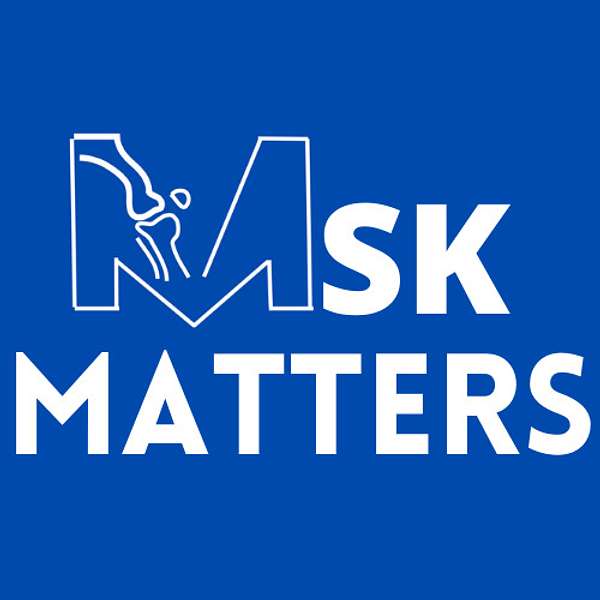
MSK Matters
MSK Matters
Sport Concussions
In this episode we review concussion, a large and nuanced topic. There are 200,000 concussions annually in Canada, making concussion knowledge required for coverage of all sports.
To gain an understanding of sport related concussions refer to the consensus statement on concussion in sport (the 5th international conference on concussion in sport held in Berlin, October 2016)
It is helpful to think of concussion management in 3 phases: acute, subacute and chronic
In the acute phase, a sideline evaluation must include screening for red flags. Review the CT Head Rules, C-Spine Rules and SCAT5 including what these tools assess, when to use them, and their common limitations. Always remember, when in doubt, sit them out!
In the subacute phase, listen to your patient. Ask them about their most bothersome symptoms, track their progress and evaluate their symptom evolution with consistent criteria (ex. vestibular ocular motor screening assessment, neck exam, neurological exam, symptom questionnaires). Encourage early return to movement, emphasizing sub symptom threshold aerobic exercise as a safe and effective treatment for sport related concussions.
Education and counselling are paramount for a good prognosis. Provide return to learn and return to play protocols with handouts. For example:
1. http://www.fowlerkennedy.com/patient-resources/sport-concussion/
2. SCHOOLFirst: Enabling successful return-to-school for Canadian youth following a concussion
10% of concussion patients will have persistent symptoms. It is important to fully understand the patient’s entire medical journey - track the their progression from the initial event to the current assessment. Ensure a multidisciplinary team is involved, if not already (PT/OT/VOR PT/SLP/Neuro-optometry/Psychology). And remember, counselling is essential!
Concussion can have a large impact on a patient’s mental health and wellness. Ask about the patient’s social support network. Assess underlying mood or anxiety disorders that may have worsened from baseline since the concussion. If needed, consider pharmacotherapy or refer to a therapist or psychiatrist.
Additional Resources:
https://cjsmblog.com/category/concussion-in-sport/
https://www.reframehealthlab.com/concussion-management/
https://abinetwork.ca/individuals-families/concussions/concussion-resources/